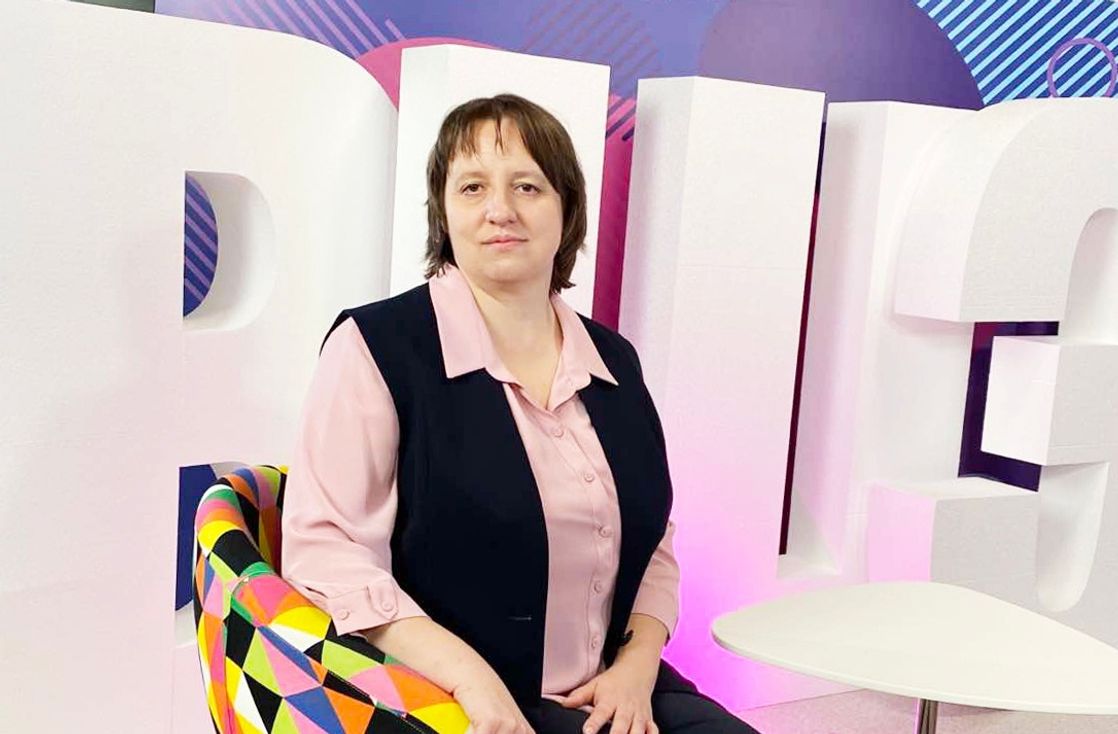Artificial and Augmented Intelligence: Connecting Business, Education and Science

The history of AI research in Nizhny Novgorod dates back to the 1960s and 1970s. Today, AI technologies, from voice assistants and smart home systems to digital twin creation and genome sequencing, are revolutionising our life. Natalia Aseeva, Dean of the Faculty of Informatics, Mathematics and Computer Science at HSE Campus in Nizhny Novgorod, discusses how the advancement of AI connects science, business, and education.
— How do AI technologies benefit people?
— Experts identify two main concepts for using AI technologies. The first is when human activity is completely replaced by technology, which is known as artificial intelligence. The second concept is when AI enhances a person's abilities, eg quickly prepares decisions based on data, but the final decision-making remains with the person. This concept is known as augmented intelligence.
There are numerous well-known examples. We have all become accustomed to using chatbots and voice assistants for various purposes, as well as finding convenient and quick routes through navigational systems. All these products use AI technologies.
Then there are several socially significant areas where human involvement and decision-making, supported by augmented intelligence systems, are crucial. For example, in medicine, digital diagnostics and high-tech research powered by artificial intelligence can be highly useful. However, the final diagnosis and treatment decisions are still made by doctors, as we are all very different and medical treatment cannot be entirely entrusted to a computer.
— Starting in 2024, HSE Campus in Nizhny Novgorod is offering enrolment to the Bachelor's Programme 'Artificial and Augmented Intelligence Technologies,' created in partnership with the Neimark IT Campus. What prompted the launch of this programme in Nizhny Novgorod?
— The history of AI research in Nizhny Novgorod dates back to the work of scientists from the 1960s and 1970s. At that time, Professor Yuri Neimark worked on the theories that laid the foundation for computer vision and artificial intelligence technologies. In the 1990s, Western IT companies arrived in this rich research environment, which, in turn, fostered the growth of the city's IT community. The OpenCV computer vision library, developed in part by Nizhny Novgorod engineers, has become a landmark project in the field of AI.
Regarding the number of companies and specialists in this field, Nizhny Novgorod currently ranks among the top in the country, according to various estimates. Therefore, it is here that we will train highly sought-after specialists whose knowledge and skills enable them to tackle both applied and research challenges in artificial intelligence and machine learning.

— What mechanisms does the programme incorporate for students to build and practice their skills?
— For the second consecutive year, HSE University has ranked in the A+ group of leaders in terms of the quality of training specialists in AI. This means that the university’s faculty are leading researchers with A* publications, and the programme includes collaborative projects with industry partners, particularly with BigTech companies such as Alfa–Bank and VK. The presence of both of these factors is essential for students to develop the ability to independently create products and services based on data.
Each student of the Bachelor's Programme 'Artificial and Augmented Intelligence Technologies' will participate in leading conferences, research schools, and other events in the field of AI, and will be involved in project activities with research teams at HSE University and its partners, starting from the first year.
— What projects are scientists at HSE Campus in Nizhny Novgorod currently working on, and are there any partner programmes focused on the development of AI technologies?
— To create applied systems in the future, we must continually expand our scientific knowledge. The Faculty of Informatics, Mathematics, and Computer Science includes cutting-edge scientific laboratories, such as the Laboratory of Algorithms and Technologies for Network Analysis (LATNA) and the Laboratory of Theory and Practice of Decision-Making Support Systems (TAPRADESS). These laboratories conduct both fundamental and applied research in the field of artificial intelligence.
For example, specialists at the Laboratory of Algorithms and Technologies for Network Analysis have been developing new network models for data mining and artificial intelligence methods for computer vision, including industrial image recognition technologies for mobile devices.
In close collaboration with the TAPRADESS Laboratory, and within the framework of the Priority 2030 programme, staff members of the Faculty of Informatics, Mathematics, and Computer Science have been working on applied projects in the field of artificial intelligence related to medicine and education.
— Why is it so important today to develop AI projects and pursue formal education in this field?
— Active implementation of AI-enabled technologies in enterprises ensures higher speed and better quality of business processes. Companies need specialists with advanced knowledge and the ability to generate innovative ideas. Russia's current AI development strategy aims to increase the number of university graduates with qualifications in artificial intelligence fivefold by 2030 and to ensure that 85% of employed specialists have applied AI skills.
There are already numerous AI-focused projects at HSE Campus in Nizhny Novgorod, involving both our staff and students. We consider it a high-priority objective to advance and implement AI technologies across various areas of human life and society, including scientific disciplines and economic sectors.
In 2024, enrolment is underway for ten state-funded and forty fee-paying places in the Bachelor’s Programme 'Artificial and Augmented Intelligence Technologies.' Click here to learn more and apply.
See also:
‘Economic Growth Without the AI Factor Is No Longer Possible’
The International Summer Institute on AI in Education has opened in Shanghai. The event is organised by the HSE Institute of Education in partnership with East China Normal University (ECNU). More than 50 participants and key speakers from over ten countries across Asia, Europe, North and South America have gathered to discuss the use of AI technologies in education and beyond.
AI to Enable Accurate Modelling of Data Storage System Performance
Researchers at the HSE Faculty of Computer Science have developed a new approach to modelling data storage systems based on generative machine learning models. This approach makes it possible to accurately predict the key performance characteristics of such systems under various conditions. Results have been published in the IEEE Access journal.
AI Predicts Behaviour of Quantum Systems
Scientists from HSE University, in collaboration with researchers from the University of Southern California, have developed an algorithm that rapidly and accurately predicts the behaviour of quantum systems, from quantum computers to solar panels. This methodology enabled the simulation of processes in the MoS₂ semiconductor and revealed that the movement of charged particles is influenced not only by the number of defects but also by their location. These defects can either slow down or accelerate charge transport, leading to effects that were previously difficult to account for with standard methods. The study has been published in Proceedings of the National Academy of Sciences (PNAS).
‘Services Must Be Flexible’: How Governments Can Use Artificial Intelligence
The HSE International Laboratory for Digital Transformation in Public Administration held a roundtable titled ‘Artificial Intelligence in Public Administration: Current Trends.’ Scholars from Israel, China, and Russia discussed which public services AI can enhance and what key factors must be considered when adopting new technologies.
Artificial Intelligence Improves Risk Prediction of Complex Diseases
Neural network models developed at the HSE AI Research Centre have significantly improved the prediction of risks for obesity, type 1 diabetes, psoriasis, and other complex diseases. A joint study with Genotek Ltd showed that deep learning algorithms outperform traditional methods, particularly in cases involving complex gene interactions (epistasis). The findings have been published in Frontiers in Medicine.
Artificial Intelligence as a Catalyst for Sustainable Development
Artificial intelligence is transforming every aspect of life, expanding both our capabilities and our boundaries. At the same time, it presents new challenges for humanity, including concerns about safety, ethics, and environmental sustainability. Today, each neural network leaves a significant carbon footprint. However, with responsible management, AI has the potential to benefit the planet and become a cornerstone of a sustainable future economy. Panos Pardalos, Academic Supervisor of the Laboratory of Algorithms and Technologies for Network Analysis at the HSE Campus in Nizhny Novgorod, emphasised this point as he addressed the XXV Yasin (April) International Academic Conference on Economic and Social Development.
HSE Develops Its Own MLOps Platform
HSE researchers have developed an MLOps platform called SmartMLOps. It has been created for artificial intelligence researchers who wish to transform their invention into a fully-fledged service. In the future, the platform may host AI assistants to simplify educational processes, provide medical support, offer consultations, and solve a wide range of other tasks. Creators of AI technologies will be able to obtain a ready-to-use service within just a few hours. Utilising HSE’s supercomputer, the service can be launched in just a few clicks.
‘HSE’s Industry Ties Are Invaluable’
Pan Zhengwu has spent the last seven years at HSE University—first as a student of the Bachelor’s in Software Engineering and now in the Master’s in System and Software Engineering at the Faculty of Computer Science. In addition to his busy academic schedule, he works as a mobile software engineer at Yandex and is an avid urban photographer. In his interview with the HSE News Service, Zhengwu talks about the challenges he faced when he first moved to Russia, shares his thoughts on ‘collaborating’ with AI, and reveals one of his top spots for taking photos in Moscow.
Scientists Present New Solution to Imbalanced Learning Problem
Specialists at the HSE Faculty of Computer Science and Sber AI Lab have developed a geometric oversampling technique known as Simplicial SMOTE. Tests on various datasets have shown that it significantly improves classification performance. This technique is particularly valuable in scenarios where rare cases are crucial, such as fraud detection or the diagnosis of rare diseases. The study's results are available on ArXiv.org, an open-access archive, and will be presented at the International Conference on Knowledge Discovery and Data Mining (KDD) in summer 2025 in Toronto, Canada.
Megascience, AI, and Supercomputers: HSE Expands Cooperation with JINR
Experts in computer technology from HSE University and the Joint Institute for Nuclear Research (JINR) discussed collaboration and joint projects at a meeting held at the Meshcheryakov Laboratory of Information Technologies (MLIT). HSE University was represented by Lev Shchur, Head of the Laboratory for Computational Physics at the HSE Tikhonov Moscow Institute of Electronics and Mathematics (HSE MIEM), as well as Denis Derkach and Fedor Ratnikov from the Laboratory of Methods for Big Data Analysis at the HSE Faculty of Computer Science.


